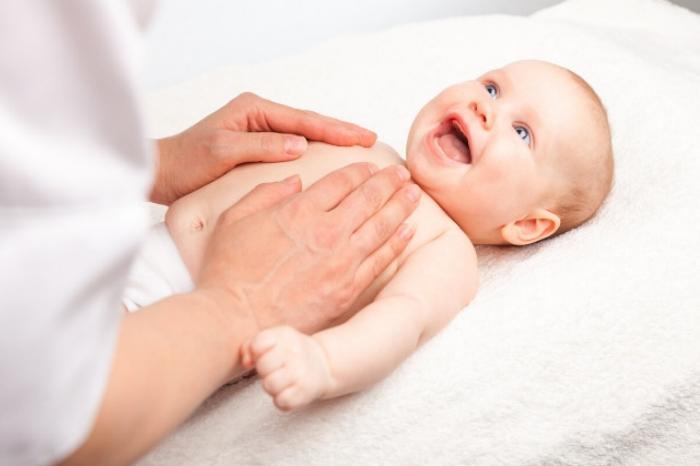Chest congestion in newborns can be concerning for parents. It often results in discomfort and may interfere with a baby’s feeding and sleeping patterns. Understanding how to effectively relieve chest congestion is crucial for ensuring your baby remains comfortable and healthy. This article provides practical advice on how to manage and alleviate chest congestion in newborns, including preventive measures and treatment options.
Understanding Chest Congestion
What is Chest Congestion?
Chest congestion occurs when mucus builds up in the chest and airways. In newborns, this can be due to a variety of factors including colds, respiratory infections, or allergies. The accumulation of mucus can lead to coughing, wheezing, and difficulty breathing.
Common Causes
Colds and Flu: Viral infections are common causes of chest congestion. These infections often lead to mucus production as the body tries to fight off the virus.
Respiratory Infections: Bacterial or viral infections can cause inflammation and mucus build-up in the airways.
Allergies: Allergens such as dust, pollen, or pet dander can also cause congestion in the respiratory system.
Recognizing Symptoms
Signs of Chest Congestion
Coughing: Frequent coughing can be a sign of chest congestion. It is the body’s way of trying to clear the mucus from the airways.
Wheezing: A high-pitched whistling sound when breathing can indicate that mucus is obstructing the airways.
Difficulty Breathing: If your baby seems to have trouble breathing or appears to be working harder to breathe, it may be a sign of significant congestion.
Additional Symptoms
Fussiness: Discomfort from congestion can make your baby irritable and fussy.
Poor Feeding: Difficulty breathing may affect your baby’s ability to feed properly, leading to reduced appetite.
Home Remedies for Relief
Keep the Air Humidified
A humidifier in your baby’s room can help moisten the air and loosen mucus in the chest. Ensure the humidifier is clean and free from mold or bacteria.
How to Use: Place the humidifier in the baby’s room while they sleep. Use a cool-mist humidifier to avoid overheating the room.
Saline Nasal Drops
Saline nasal drops can help loosen mucus in the nasal passages and make it easier for your baby to breathe.
How to Use: Place a few drops of saline solution into each nostril. Follow this with gentle suction using a bulb syringe to remove the loosened mucus.
Gentle Chest Massage
Gently massaging your baby’s chest can help loosen mucus and ease congestion. Use soft, circular motions and avoid applying too much pressure.
How to Perform: With your baby lying on their back, use your fingertips to gently massage the chest area. Be gentle and ensure the baby is calm.
Elevate the Head
Slightly elevating your baby’s head during sleep can help with drainage and reduce congestion.
How to Elevate: Place a small, rolled towel or a pillow under the head of the crib mattress to create a slight incline. Ensure the incline is safe and does not pose a risk of suffocation.
Warm Baths
A warm bath can help relax your baby and ease chest congestion. The steam from the bath can also help loosen mucus.
How to Use: Gently bathe your baby in a warm bath. Ensure the water temperature is comfortable and not too hot.
When to Seek Medical Attention
Persistent or Severe Symptoms
If your baby’s congestion is persistent or severe, consult a pediatrician. Symptoms such as difficulty breathing, high fever, or poor feeding require professional evaluation.
Signs of Infection
Look for signs of infection such as a high fever, lethargy, or unusual irritability. These symptoms may indicate a more serious condition that needs medical attention.
Consulting a Pediatrician
Schedule an appointment with a pediatrician if you have concerns about your baby’s health or if home remedies do not provide relief. The pediatrician can assess your baby’s condition and recommend appropriate treatment.
Preventive Measures
Maintain a Clean Environment
Keeping your baby’s environment clean and free from allergens can help prevent congestion. Regularly clean surfaces, wash bedding, and ensure good air quality.
Avoid Exposure to Smoke
Exposure to cigarette smoke and other pollutants can irritate your baby’s respiratory system and contribute to congestion. Avoid smoking around your baby and ensure a smoke-free environment.
Practice Good Hygiene
Wash your hands frequently and avoid close contact with sick individuals to reduce the risk of infections. Good hygiene practices help prevent the spread of viruses and bacteria.
Breastfeeding
Breastfeeding provides your baby with essential nutrients and antibodies that can help strengthen their immune system and reduce the risk of infections.
See also: When Do Night-Time Feeds Stop?
Conclusion
Relieving chest congestion in newborns involves a combination of home remedies, preventive measures, and, when necessary, medical intervention. Keeping the air humidified, using saline nasal drops, and gently massaging the chest are effective ways to help alleviate congestion. However, it is crucial to monitor your baby’s symptoms and seek medical attention if needed. By taking these steps, you can help ensure your baby remains comfortable and healthy while managing chest congestion effectively.


